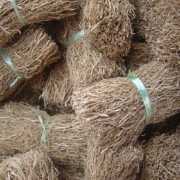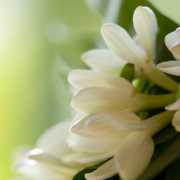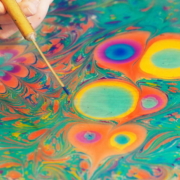Patchouli – Psychology of a perfume

Patchouli – The perfume of a pirate
Patchouli perfume
Patchouli is an oil that is essential in many ways in the composition of natural perfumes.
It is obtained from the dried leaves of the Patchouli bush, which are macerated in water before being distilled.
Its aroma is of deep undergrowth and of forest lichens. It is camphoric and moldy and tastes of damp bushland.
It is an intimate, sensual, invasive, aphrodisiac, and provocative smell.
These latter adjectives strangely also describe human pheromones. Patchouli could be a substitute or enhancer for our production of pheromones. These very pheromones that we obsessively wash away every day with aggressive soaps and deodorants.
This pheromonal dimension of Patchouli essence is probably the reason why it has always exerted an enthusiastic appeal from young people, and it is also probably the reason why it was never liked by their parents, who have in life a specific role and a social image to undertake and conform to.
When a boy full of patchouli gets on the metro or on the bus, a negative reaction is often red on the faces of passengers. It is because Patchouli perfume activates the pituitary gland of those who smell it, causing endorphin, the love hormone, to be released into their bloodstream. Endorphin is certainly out of place on the morning of the commuter’s train. Therefore, the reproaching faces.
If someone tries to give you an injection of endorphins in the morning while going to work on the bus, you would certainly take it as physical aggression. This is exactly what the boy does with his perfume of patchouli, without a syringe.
Patchouli is the favorite perfume of the rebels. Who does not like it is not a real rebel, however much he thinks to be.
Rebels, idealists, experimenters of mental and psychic experiences, researchers of new ways… Patchouli is your perfume. It will support you as long as you remain such, whatever your age.
Patchouli perfume in natural perfumery
Patchouli confers density and body to the flowery essences in natural perfumes and is often the magical ingredient that makes commercial synthetic perfumes smell good. It is capable of giving them a status of sophistication without which these commercial fragrances would remain in the olfactory realm of anti-mosquitoes sprays.
The perfume of Patchouli is an olfactory archetype that represents the mystical adventure of India, the rebellion of youth against the established order, the provocative sensuality of adolescence, and the refuge of deep forests.
Its scent helps us organize our ideas and stimulates in us the desire to overcome the limits set by society and by our physical nature, in order to find new ways of thinking and of understanding.
Patchouli perfume helps us reconnect with the base chakra, with our physicality, when we tend too much towards intellectuality or idealism.
In natural perfumery, this essence is inevitable, indispensable, and irreplaceable.
Combines harmoniously with everything, but particularly with the essences of ylang-ylang, rose, tuberose, jasmine, tonka, cinnamon, incense, myrrh, and opoponax.
Patchouli perfume in aromatherapy
In aromatherapy, it is used in massages against water retention, in topical use against mycoses, and in internal use against intestinal infections.

























Liked the information about Patchouli. I was eager to know about Patchouli from long time. Finally got to know. Thanks
So nice articles, thanks! Really like it!
Such a piece of great information and the article is really great to find about more info here and many more
I love reading your writings as well. I am currently binge reading on your website. This is such a beautiful corner of the web.
You write so thoughtfully of patchouli…which indeed unsettles people with its powerful scent. Just wanted to say I like the way you write and appreciate the detail and insights that color your descriptions…
Cheers,
Kyle Roderick